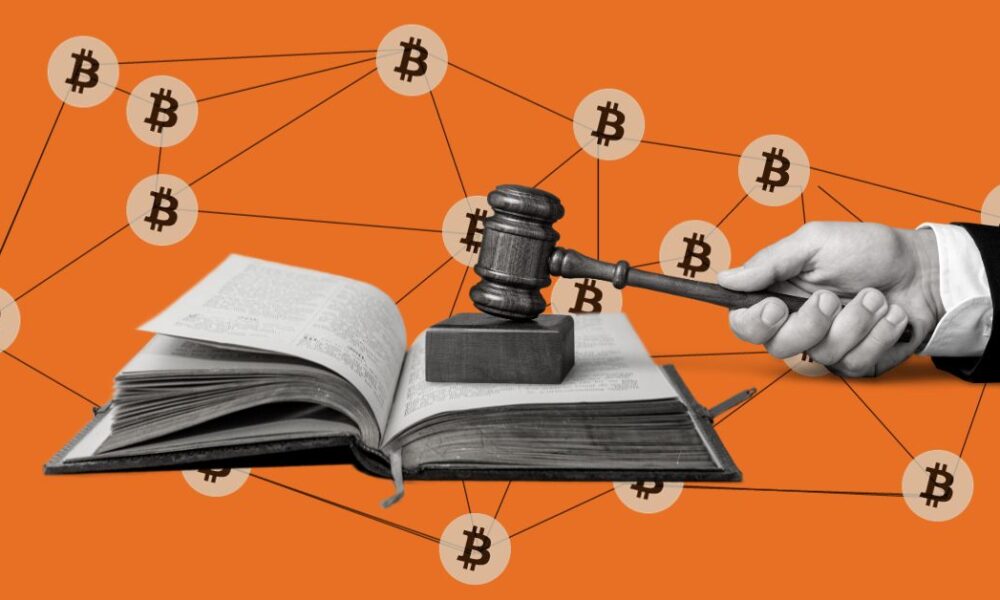Blockchain
From Kraken to Robinhood: Crypto Giants Face the SEC’s Expanding Grip

Recent regulatory actions by the U.S. Securities and Exchange Commission have drawn criticism not only from the general public but also from professionals. Numerous cryptocurrency exchanges and platforms have raised concerns about the SEC’s harsh behavior towards the cryptocurrency industry.
From Kraken to Coinbase and now Robinhood, the SEC’s aggressive stance has raised questions about whether the agency is exceeding its authority and potentially stifling innovation in the cryptocurrency industry.
Accusations of regulatory overreach
Ryan Sean Adams, a well-known cryptocurrency advocate, shared his thoughts on the topic, saying that the SEC’s lawsuits against various crypto platforms for “helping regular Americans access cryptocurrencies” could harm the industry and influence political outcomes .
As Adams noted, “The SEC is now suing Kraken, Coinbase, Uniswap, Metamask, and now Robinhood for the crime of helping regular Americans access cryptocurrencies. This level of regulatory overreach has destroyed the legitimacy of the SEC and could cause Democrats to lose elections. The voters don’t want it.”
However, it’s not just Ryan who is expressing his dissatisfaction with the SEC’s hostile approach towards cryptocurrencies.
State AGs oppose SEC
The SEC’s lawsuit against Kraken, filed last year, drew opposition from a group of attorneys general from the states of Montana, Arkansas, Iowa, Mississippi, Nebraska, Ohio, South Dakota and Texas.
These AGs argue that the SEC is overstepping its bounds by expanding the definition of “investment contract” and that cryptocurrencies are “not automatically securities.”
The AGs, along with industry lobbyists and other participants, filed a joint amicus brief in support of Kraken, arguing that the SEC’s actions could harm consumers and undermine state laws designed to protect them.
The document stated: “States have a strong interest in preventing potential preemption of consumer protection and other state laws by the SEC’s attempt to regulate cryptocurrencies as securities.”
Wells SEC Notices and Regulatory Concerns
Robinhood, a widely used stock trading app with a cryptocurrency arm, recently received a Wells Notice from the SEC, which could be a sign of impending enforcement action against its U.S. cryptocurrency businesses. The letter states that the SEC may initiate further enforcement proceedings following the alleged violations in connection with securities registration.
Dan Gallagher, Robinhood’s head of legal, compliance and corporate affairs, is very troubled by the SEC’s method, suggesting that the latter’s cryptocurrency offerings are not securities.
He said: “We remain of the position that the assets listed on our platform are not securities,” as well as implying that the main foundations on which the SEC’s case against Robinhood could have been built are flimsy.
Uniswap and the decentralized finance sector
Uniswap, a well-known DEX, is also under attack by the SEC. Wells’ notice served on Uniswap stands out because the regulator’s enforcement actions primarily target centralized exchanges. Uniswap’s Chief Legal Officer countered this argument by stating that the SEC’s Wells notice and intended enforcement action demonstrated “arbitrary enforcement and continued abuse of power.”
The emergence of such an ecosystem leads to a dilemma on SEC regulatory frameworks for decentralized finance (DeFi) platforms. The SEC’s focus is shifting to DeFi, which could have significant implications for the industry, resulting in setbacks in its growth and innovation.
Is the SEC overreacting?
The SEC’s aggressive approach to numerous crypto projects has raised the question of whether the agency is pushing its authority further than normal. Critics argue that the SEC’s broad reach with its securities laws would be harmful to innovation and consumers by circumventing state laws. Whether or not these legal battles bring definitive results, they will likely shape the future of the cryptocurrency business and its regulatory frameworks.
